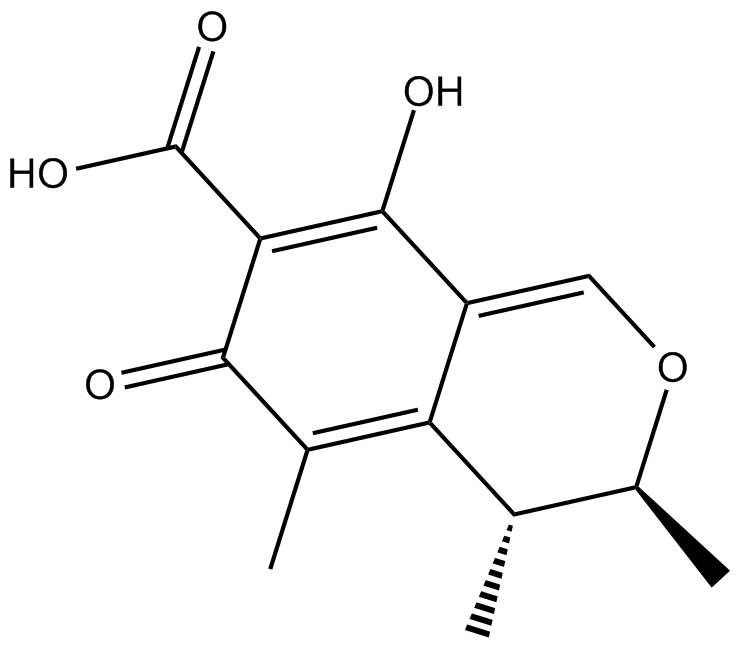Citrinin (Synonyms: NSC 186) |
| Catalog No.GC16661 |
A mycotoxin inducing apoptosis
Products are for research use only. Not for human use. We do not sell to patients.

Cas No.: 518-75-2
Sample solution is provided at 25 µL, 10mM.
Citrinin is a mycotoxin inducing apoptosis and blocking tubulin polymerization and mitotic spindle assembly.
Citrinin is a mycotoxin originally isolated from P. citrinum that is also produced by a variety of other fungi that are found as contaminants in human foodstuffs and animal feeds.
In vitro: Previous study found that exposure of HEK293 cells to citrinin led to an arrest of cell cycle G2/M in a concentration-dependent increase. Citrinin treatment could also elevate the expression levels of p53 and p21 proteins, yet attenuate the signals of phosphorylated cell division cycle 2. Moreover, treating HEK293 with citrinin could increase both the value of mitotic index and the population of cells, indicating that arrest of citrinin -induced cell cycle occurred mainly during the mitotic phase [1].
In vivo: Previous study showed that citrinin acted as a nephrotoxin in all tested animal species, but its acute toxicity varied in different species. The 50% lethal dose for ducks is 57 mg/kg; for chickens it is 95 mg/kg; and for rabbits it is 134 mg/kg. In murine kidneys, citrinin could also synergistically act with ochratoxin A to depress RNA synthesis [2].
Clinical trial: Up to now, there is no clinical data reported.
References:
[1] Chang CH, Yu FY, Wu TS, Wang LT, Liu BH. Mycotoxin citrinin induced cell cycle G2/M arrest and numerical chromosomal aberration associated with disruption of microtubule formation in human cells. Toxicol Sci. 2011 Jan;119(1):84-92.
[2] J. W. Bennett and M. Klich. Mycotoxins. Clin.Microbiol.Rev. 16(3), 497-516 (2003).
Average Rating: 5 (Based on Reviews and 38 reference(s) in Google Scholar.)
GLPBIO products are for RESEARCH USE ONLY. Please make sure your review or question is research based.
Required fields are marked with *




















